The Color of Pomegranates
by angeliska on December 20, 2013
This recent autumn was the best year for pomegranates. The tree planted by the pond in the garden seven or so years ago has been flourishing in this strange weather we’ve been having. Oft times, at harvest, the fruits would be cankered with the befouling kisses of some strange bug, with brown patches and tell-tale black pinholes on the thick red rinds. No such plague this year, thankfully! The pomegranates I plucked were larger and far sweeter than ever before – crimson globes hung like giant Christmas ornaments on the tree that’s grown nearly taller than the house. I’ve been fixated on their magic this year especially, and feel so grateful to have this gorgeous tree growing near me, feeding me and my loved ones with her bounty. In honor of this grand tree and her marvelous fruit, I’ve compiled some of my favorite poems, writings and images inspired by the magic of the pomegranate.

In modern times the pomegranate still holds strong symbolic meanings for the Greeks. On important days in the Greek Orthodox calendar, such as the Presentation of the Virgin Mary and on Christmas Day, it is traditional to have at the dinner table “polysporia”, also known by their ancient name “panspermia,” in some regions of Greece. In ancient times they were offered to Demeter and to the other gods for fertile land, for the spirits of the dead and in honor of compassionate Dionysus. When one buys a new home, it is conventional for a house guest to bring as a first gift a pomegranate, which is placed under/near the ikonostasi (home altar) of the house, as a symbol of abundance, fertility and good luck. Pomegranates are also prominent at Greek weddings and funerals. When Greeks commemorate their dead, they make kollyva as offerings, which consist of boiled wheat, mixed with sugar and decorated with pomegranate.It is also traditional in Greece to break a pomegranate on the ground at weddings and on New Years. Pomegranate decorations for the home are very common in Greece and sold in most home goods stores.
“In order to eat a pomegranate you need this many things: a pomegranate, a knife, a cutting board, a bowl and a towel.
Also, two hands. These help with the making of the pomegranate.”
― Tahereh Mafi
“This is our Central Texas fall, blue skies, an occasional floating shower that is gone too soon, luscious ripe prickly pear fruit,black juicy native persimmons, and pomegranate trees loaded with sweet heavy grenades.
The pomegranate utterly drips with symbolic significance beyond our physical senses. It is also at once pleasing and teasing our taste buds – with that sweet pop of its edible ruby seeds, attained through the laborious task of consuming a few morsels at a time.
The illustrious Punica granatum has an ancient pedigree. Not only does it appear in the Old Testament, but circles of Jewish scholars believe that it is actually the pomegranate and not the apple that is the forbidden fruit so fatefully consumed in the garden of Eden. According to same tradition, the pomegranate (rimon) is considered to be a holy symbol due to the held belief that the number of seeds contained in the fruit are equivalent to the 613 mitzvoth (commandments). The sacred rimon is used abundantly in Jewish ritual for a variety of symbolic implications.
Our eminent pomegranate is called “Granada” in Spanish, meaning “grenade”, which its physical shape resembles. In the Major Arcana of the Tarot, the High Priestess and the Empress are both illustrated with imagery of the pomegranate. The High Priestess sits in front of a curtain adorned with the fruit’s likeness and represents intuitive knowledge and femininity, among other attributes. The empress, the mother figure, sits in the gown of pomegranates on her throne in a field of grain. She represents the seed and the harvest, and reminds us that we reap what we sow, to say the least.
Punica granatum is universally a symbol of femininity, fertility and abundance. This long held belief is reinforced each autumn, when the pomegranate reaches its peak of maturity, coinciding with the season of plentiful harvest. Her majesty of fruits reminds us once more, that no plant is ever merely a plant. but an entire mythos unto itself.
May you in good health, continue to follow the beckoning of their provocation to explore ever deeper the enchantment of their ways.”
– From Season of The Sacred Pomegranate
by Carla Vargas-Frank, as featured in the most recent La Botanica

A behemoth pomegranate, just plucked from my tree. I took a bundle of them as potluck offering for a Full Moon Story Circle and potluck.
Once when I was living in the heart of a pomegranate, I heard a seed
saying, “Someday I shall become a tree, and the wind will sing in
my branches, and the sun will dance on my leaves, and I shall be
strong and beautiful through all the seasons.”
Then another seed spoke and said, “When I was as young as you, I
too held such views; but now that I can weigh and measure things,
I see that my hopes were vain.”
And a third seed spoke also, “I see in us nothing that promises so
great a future.”
And a fourth said, “But what a mockery our life would be, without
a greater future!”
Said a fifth, “Why dispute what we shall be, when we know not even
what we are.”
But a sixth replied, “Whatever we are, that we shall continue to
be.”
And a seventh said, “I have such a clear idea how everything will
be, but I cannot put it into words.”
Then an eight spoke–and a ninth–and a tenth–and then many–until
all were speaking, and I could distinguish nothing for the many
voices.
And so I moved that very day into the heart of a quince, where the
seeds are few and almost silent.
The Pomegranate ― Khalil Gibran

In the Garden of Eden grow pomegranates bigger than your head. Have a bite, won’t you?
“I felt like a seed in a pomegranate. Some say that the pomegranate was the real apple of Eve, fruit of the womb, I would eat my way into perdition to taste you.”
― Jeanette Winterson, Written on the Body
One of the greatest masterpieces of the 20th century, Sergei Parajanov ‘s “Color of the Pomegranate”, a biography of the Armenian troubadour Sayat Nova (King of Song) reveals the poet’s life more through his poetry than a conventional narration of important events in Sayat Nova ‘s life.
“Parajanov made films not about how things are, but how they would have been had he been God.”
— Critic Alexei Korotyukov
“Its rich, deep colors remind us also of the fall – midnight blues, blood reds, rich yellows. It really is a feast for the eyes. The whole film is a poem, both visually and cinematically.
Sofiko Chiaureli, the main character(s) in the film and thought of to be Parajanov’s muse, is incredible to watch as she shifts between male and female seamlessly, morphing and gliding across the screen with such elegance and grace, its impossible to keep your eyes off of her.”
– RECSPEC – THE COLOR OF POMEGRANATES
“The pomegranate is the symbol of Armenia and represents fertility, abundance and marriage. One ancient custom widely accepted in ancient Armenia was performed at weddings. A bride was given a pomegranate fruit, which she threw against a wall, breaking it into pieces. Scattered pomegranate seeds ensured the bride future children. In Artsakh it was accepted to put fruits next to the bridal couple during the first night of marriage. The pomegranate was among those fruits, and was said to also ensure happiness. It is believed the couple enjoyed a pomegranate wine as well.The symbol of the pomegranate is connected with insemination. It protected a woman from infertility and protected a man’s virile strength. Currently, pomegranate juice is famous with Armenians in food and heritage.
The pomegranate gained a new symbolism after Armenian Genocide that left millions of Armenians spread all over the world; Armenians use the pomegranate and its many seeds to symbolize the Armenian people and their resilience. The pomegranate is also seen as the fruit of life for Armenians because during the genocide the only food they had came from fruits on trees. It is said that there are approximately 365 seeds in each pomegranate and the Armenians survived by eating one seed each day during their exile.”
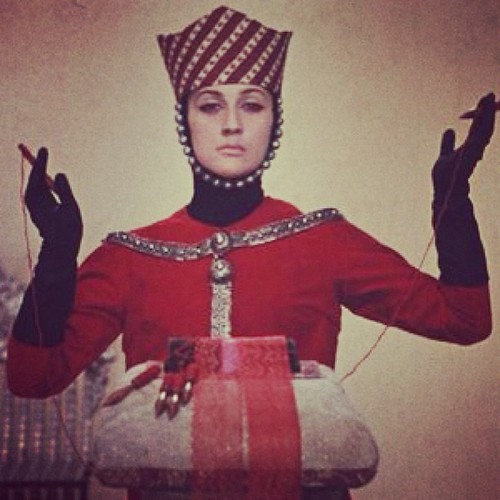
“It was the face of spring, it was the face of summer, it was the warmness of clover breath. Pomegranate glowed in her lips, and the noon sky in her eyes. To touch her face was that always new experience of opening your window one December morning, early, and putting out your hand to the first white cool powdering of snow that had come, silently, with no announcement, in the night. And all of this, this breath-warmness and plum-tenderness was held forever in one miracle of photographic is chemistry which no clock winds could blow upon to change one hour or one second; this fine first cool white snow would never melt, but live a thousand summers.”
― Ray Bradbury, Dandelion Wine

“My heart is like a singing bird
Whose nest is in a water’d shoot;
My heart is like an apple-tree
Whose boughs are bent with thick-set fruit;
My heart is like a rainbow shell
That paddles in a halcyon sea;
My heart is gladder than all these,
Because my love is come to me.
Raise me a daïs of silk and down;
Hang it with vair and purple dyes;
Carve it in doves and pomegranates,
And peacocks with a hundred eyes;
Work it in gold and silver grapes,
In leaves and silver fleurs-de-lys;
Because the birthday of my life
Is come, my love is come to me.”
― Christina Rossetti, Poems of Christina Rossetti

“And her sweet red lips on these lips of mine
Burned like the ruby fire set
In the swinging lamp of a crimson shrine,
Or the bleeding wounds of the pomegranate,
Or the heart of the lotus drenched and wet
With the spilt-out blood of the rose-red wine.”
― Oscar Wilde
“Thy lips are like a thread of scarlet, and thy speech is comely: thy temples are like a piece of a pomegranate within thy locks.
Song of Solomon 4:3
The Tamil name maadulampazham is a metaphor for a woman’s mind. It is derived from, maadhu=woman, ullam=mind, which means as the seeds are hidden, it is not easy to decipher a woman’s mind.

You tell me I am wrong.
Who are you, who is anybody to tell me I am wrong?
I am not wrong.
In Syracuse, rock left bare by the viciousness of Greek
women.
No doubt you have forgotten the pomegranate-trees in
flower,
Oh so red, and such a lot of them.
Whereas at Venice
Abhorrent, green, slippery city
Whose Doges were old, and had ancient eyes.
In the dense foliage of the inner garden
Pomegranates like bright green stone,
And barbed, barbed with a crown.
Oh, crown of spiked green metal
Actually growing!
Now in Tuscany,
Pomegranates to warm, your hands at;
And crowns, kingly, generous, tilting crowns
Over the left eyebrow.
And, if you dare, the fissure!
Do you mean to tell me you will see no fissure?
Do you prefer to look on the plain side?
For all that, the setting suns are open.
The end cracks open with the beginning:
Rosy, tender, glittering within the fissure.
Do you mean to tell me there should be no fissure?
No glittering, compact drops of dawn?
Do you mean it is wrong, the gold-filmed skin, integument,
shown ruptured?
For my part, I prefer my heart to be broken.
It is so lovely, dawn-kaleidoscopic within the crack.
From “Birds, Beasts, And Flowers: Poems By D. H. Lawrence.”
“If the authors of Genesis envisioned any one particular fruit dangling from that infamous tree in Eden, scholars argue it was likely the pomegranate. In the Greco-Roman tradition, those same ruby seeds cursed Persephone to an eternal half-life, consigned her to winter after winter with her abductor-husband, Hades, among the pomegranate groves of the dead. From Jerusalem to Athens to Rome, this is the fruit you get when love spoils into lust, when desire goes to seed. This is not a fruit you want to crack open.”
THE POEM STUCK IN MY HEAD – D. H. Lawrence’s “Pomegranate”

My contribution to Thanksgiving dinner last year: persimmon, pomegranate, squash, orange pepper, robusto cheese, asian pear, golden cherry tomato salad. It was so delicious, I might have to repeat it again soon…
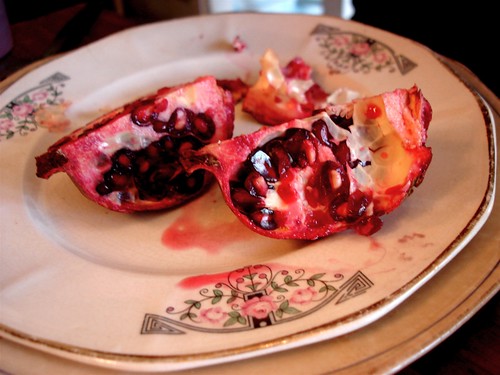
If you buy a pomegranate,
buy one whose ripeness
has caused it to be cleft open
with a seed-revealing smile.
Its laughter is a blessing,
for through its wide-open mouth
it shows its heart,
like a pearl in the jewel box of spirit.
The red anemone laughs, too,
but through its mouth you glimpse a blackness.
A laughing pomegranate
brings the whole garden to life.
Keeping the company of the holy
makes you one of them
Whether you are stone or marble,
you will become a jewel
when you reach a human being of heart.
Plant the love of the holy ones within your spirit;
don’t give your heart to anything
but the love of those whose hearts are glad.
Don’t go to the neighborhood of despair:
there is hope.
Don’t go in the direction of darkness:
suns exist.
The heart guides you to the neighborhood of the
saints;
the body takes you to the prison of water and earth.
Give your heart the food of holy friends;
seek maturity from those who have matured.
THE LAUGHTER OF POMEGRANATES ― Mawlana Jalal-al-Din Rumi
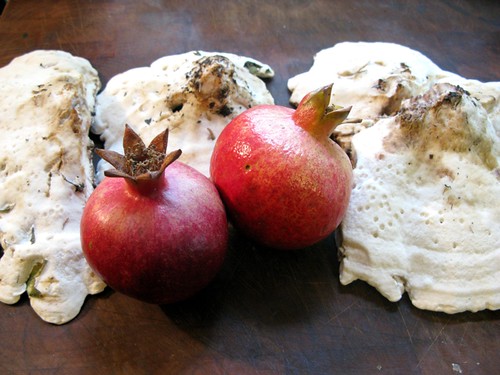
pomegranates + mushrooms
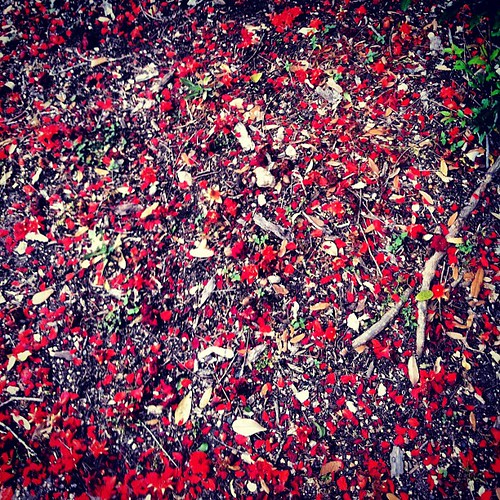
Love makes of each moment an eternity
And tends the garden of the heart’s desire
When love mocks, ruby tears fall heavy as pomegranates
And when love looks, it sees your deepest mystery.
Love seeks out the tears of hidden hearts
And turns not from the Lovers of the Dawn.
Is there a remedy for the pain of love?
Or is it too unbearable for thought?
One taste of the medicine
And you will realize just how sick you have been.
Those who plead in the defense of love
In love’s judgement shall find grace
And to that court, Hafiz
May your heart fly…
― Hafiz

“In older myths, the dark road leads downward into the Underworld, where Persephone is carried off by Hades, much against her will, while Ishtar descends of her own accord to beat at the gates of Hell. This road of darkness lies to the West, according to Native American myth, and each of us must travel it at some point in our lives. The western road is one of trials, ordeals, disasters and abrupt life changes — yet a road to be honored, nevertheless, as the road on which wisdom is gained. James Hillman, whose theory of ‘archetypal psychology’ draws extensively on Greco–Roman myth, echoes this belief when he argues that darkness is vital at certain periods of life, questioning our modern tendency to equate mental health with happiness. It is in the Underworld, he reminds us, that seeds germinate and prepare for spring. Myths of descent and rebirth connect the soul’s cycles to those of nature.”
― Terri Windling
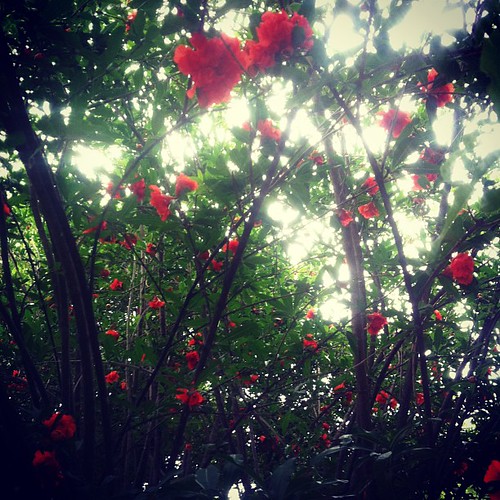
“Take from my palms, to soothe your heart,
a little honey, a little sun,
in obedience to Persephone’s bees.
You can’t untie a boat that was never moored,
nor hear a shadow in its furs,
nor move through thick life without fear.
For us, all that’s left is kisses
tattered as the little bees
that die when they leave the hive.
Deep in the transparent night they’re still humming,
at home in the dark wood on the mountain,
in the mint and lungwort and the past.
But lay to your heart my rough gift,
this unlovely dry necklace of dead bees
that once made a sun out of honey.”
― Osip Mandelstam, The Selected Poems

“Be to her, Persephone,
All the things I might not be;
Take her head upon your knee.
She that was so proud and wild,
Flippant, arrogant and free,
She that had no need of me,
Is a little lonely child
Lost in Hell,—Persephone,
Take her head upon your knee;
Say to her, “My dear, my dear,
It is not so dreadful here.”
― Edna St. Vincent Millay, Collected Poems

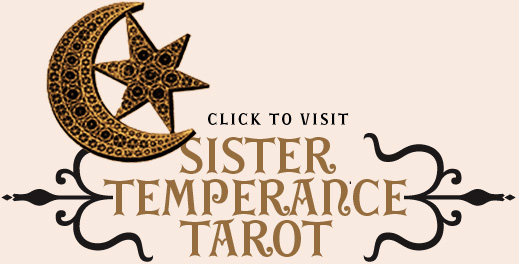
Leave your comment